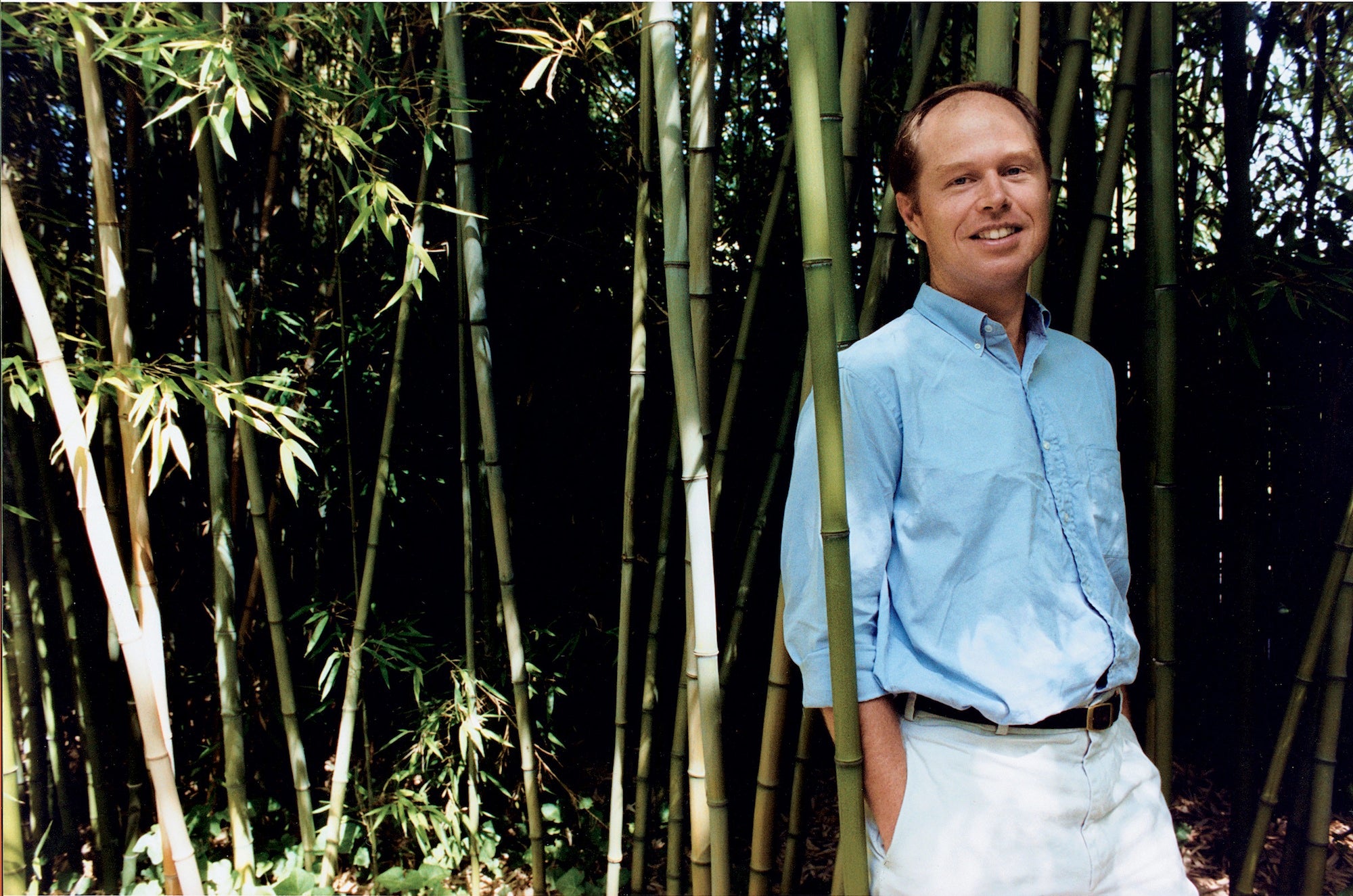Growing up in Oregon in the 1960s and 1970s, Bern Johnson ’87 saw wild rivers dammed and forests denuded by clear-cut logging. As a camper and fisherman, he quickly understood the need for protecting the resources he was enjoying.
“The usual tension in environmental debates is short-term exploitation of resources versus preserving resources for future generations. That same dynamic I see all over the world now,” said Johnson, executive director of the Environmental Law Alliance Worldwide U.S., a nonprofit that helps lawyers around the world bring legal actions to protect the environment.
E-LAW was founded in 1989 by lawyers from 10 countries who met at a conference in Eugene, Ore., where the U.S. group is now based. “They realized,” Johnson said, “that though languages differed and legal systems differed, environmental issues are pretty much the same.”
After two years as the first staff attorney of E-LAW U.S., Johnson became executive director in 1993, when that position was created. E-LAW began as a consultancy, giving environmental lawyers in places from Brazil to the former Soviet Union to Papua New Guinea to South Africa scientific data to back up their cases, along with relevant U.S. court opinions.
But Johnson soon saw a need to broaden E-LAW’s focus. Many lawyers E-LAW consulted were doing public interest work on the side while they tried to make a living. “Often, they were working essentially alone,” he said. “They wanted to create sustainable organizations that would bring together more lawyers [and] create a lasting voice for the environment.”
In the mid-’90s, E-LAW started helping form environmental law groups in countries where few or none existed. After workshops were conducted by E-LAW staffers, including Johnson, in locations all over Mexico, the number of Mexican environmental law groups jumped from one to five.
E-LAW also helped found the first environmental law organizations in Tanzania and Chile. In the spring, Johnson will travel to Bolivia, to help a group there too.
One of Johnson’s most memorable overseas trips took him to Iran in May 2001. “I can’t imagine a culture more different from ours, but you get there and see that the Iranian people have a deep concern about the environment,” he said. “The air quality in Tehran is horrible. In the Caspian Sea, the sturgeon are dying. A superhighway threatens a fragile coastal ecosystem.”
While in Iran, Johnson helped the University of Tehran formulate a curriculum for the country’s first environmental law program. He also spoke at a conference attended by Iranian law professors and members of the country’s young but fast-growing environmental movement, where he explored possible legal solutions for environmental disputes in that country.
Since the Iran trip, tensions have grown between the U.S. government and the Islamic world, but E-LAW has kept in close touch with Iranian environmentalists like University of Tehran Professor Victoria Jamali, co-founder of the country’s first environmental group and first environmental law society. Last spring, when a spill of the gasoline additive MBTE threatened a water supply in Iran, local environmentalists sent E-LAW a request for information on MBTE’s environmental impact. Giving the Iranians the information, Johnson said, “will help people in that community make better decisions about dealing with the spill. And if it helps move people in Iran and people in the U.S. closer together, I think that will be a good thing too.”
